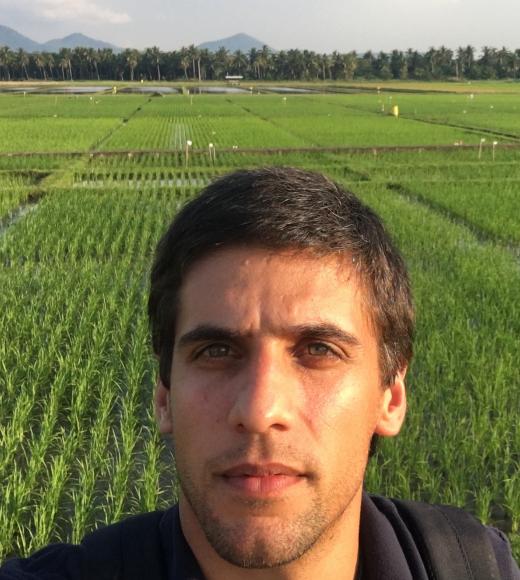
Position Title
PhD student
- Horticulture & Agronomy
Project
Crop-pasture rotations are increasingly less common in the world. However, Argentina, Brazil, and Uruguay are examples where these systems persist, even under agricultural intensification processes. Historically, rice has been rotated with pastures in Uruguay which has allowed sustained growth of productivity and conservation of natural resources, especially considering the lower use of inputs compared to other systems. Yet, there is a trend towards intensification, either with a higher frequency of rice in the rotation, or with other crops and more inputs. Most previous research has focused on the rice phase of the rotation, meaning environmental impacts and production efficiencies of the whole system remain poorly understood. The main objective of my research will be to evaluate the sustainability of different rice production systems and the trade-offs between agronomic, environmental, and economic indicators. To achieve this, I will use data from a long-term experiment starting in 2012 which consists of 6 rice-based rotations, as well as a large, on-farm database of management practices from the private Uruguayan rice sector.
Background
Ignacio was born in Treinta y Tres, Uruguay. He studied Agronomy (2012) at the University of the Republic. He worked at the National Institute for Agricultural Research (INIA) of Uruguay (2013-2019) as a Research Assistant in sustainable agriculture, cropping systems, and crop and soil management, including research on long term field experiments related with crop and pasture rotation systems. His MS degree (2018) focused on soil quality and energy use efficiency in rice-based cropping systems.
Research interest
I am interested in the design of sustainable cropping systems to achieve high-yielding crop-pasture production that is economically attractive but with low environmental footprint. My research interests include crop and soil management, environmental sustainability, remote sensing, geospatial analysis and multicriteria analysis.